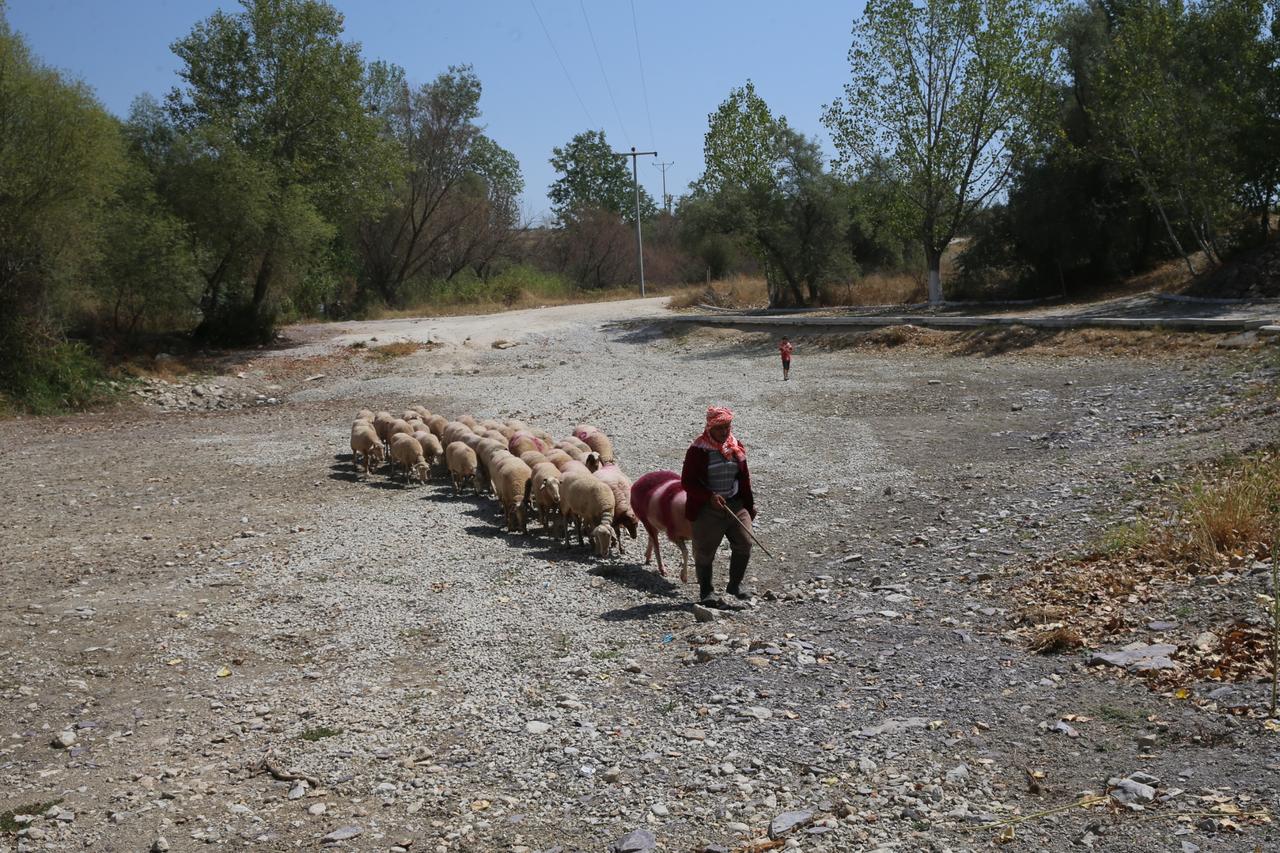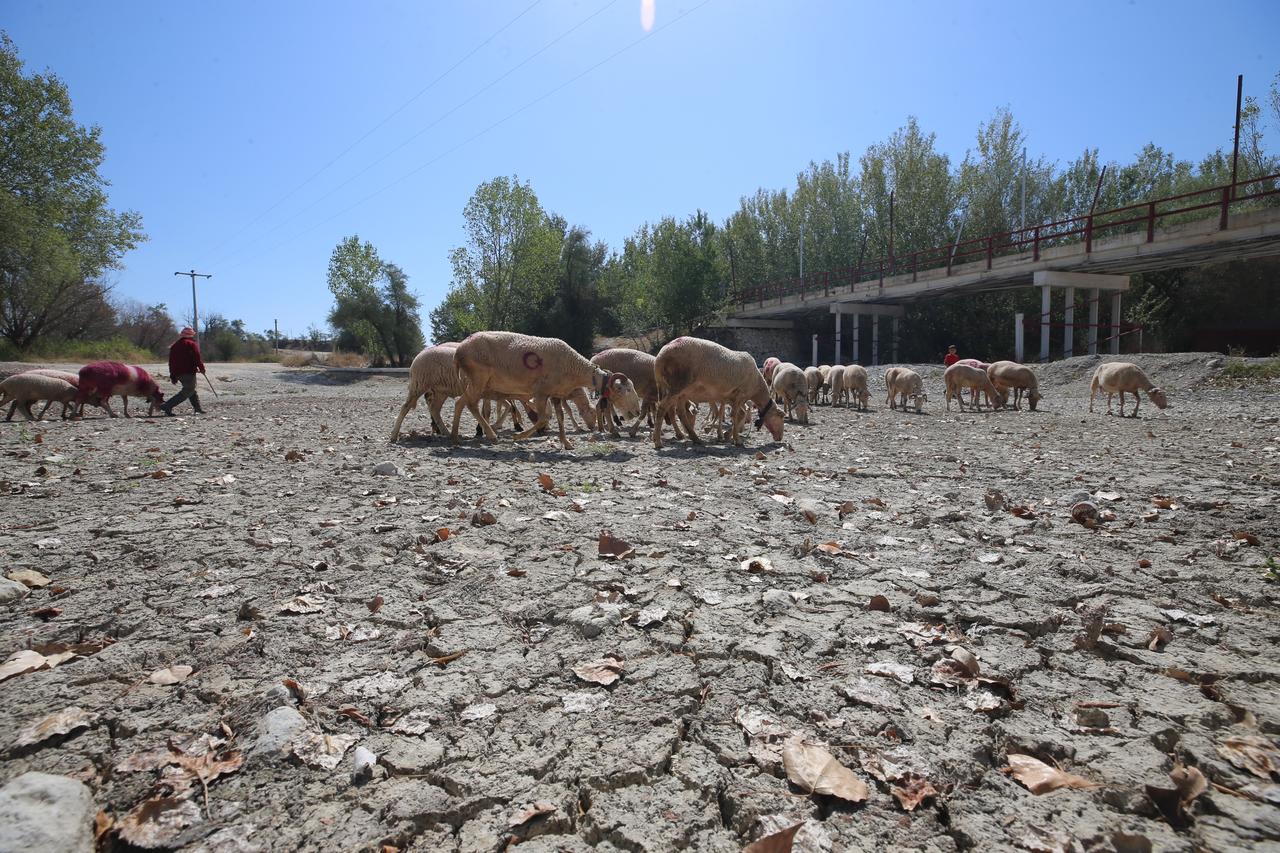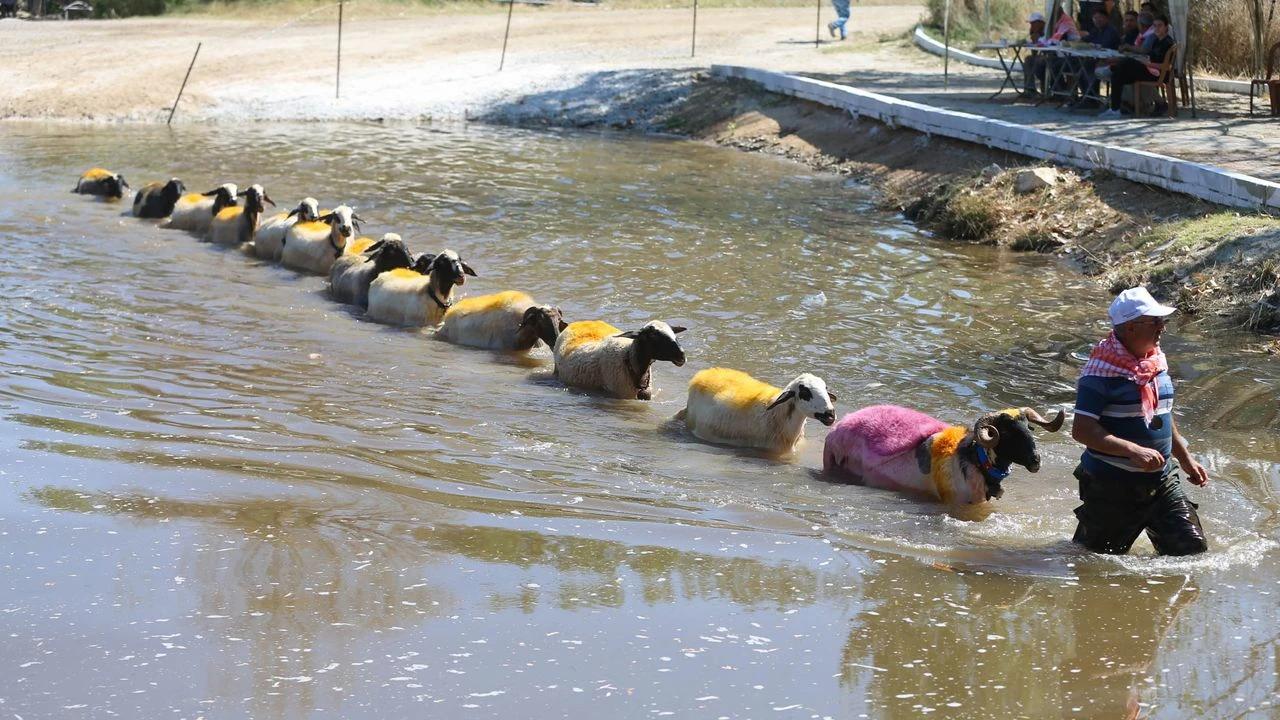
An 852-year-old ritual known as “Sheep Swimming” (Sudan Koyun Gecirme), recognized by UNESCO on its List of Intangible Cultural Heritage, was held in an unusual way this year in Denizli’s Cal district of western Türkiye. The event, normally performed in the flowing waters of the Buyuk Menderes River, took place symbolically in the completely dried-out riverbed to draw attention to the region’s growing drought crisis.
Organized by the Asagiseyit Neighborhood Council, the Cal Regional Solidarity Association, and the Association of Cal Businesspeople, residents gathered at the Köprübasi point of the river. Instead of swimming across, around 30 sheep were walked through the dry bed while participants carried banners reading, “Water is life, water is a right.”

Mehmet Atilsin, head of the Cal Industrialists and Businesspeople Association, said that the ritual could not be carried out in its traditional way because of the river’s condition. He noted that the drying of the Menderes over the past five years had disrupted not only farming but also the entire ecosystem, with grape harvests now arriving earlier than before. “The absence of water does not only cause economic loss but also destroys cultural continuity,” he explained.
Professor Bulent Topuz, deputy chair of the Cal Regional Solidarity Association, emphasized the urgent need for action. “There is no longer a Menderes left to cross. We are not looking for someone to blame, we are looking for solutions. Water is life, water is a right. Authorities must step in,” he said, adding that a nation cannot survive without its culture.

Cal Mayor Ahmet Hakan and Asagiseyit’s village head Saffet Oguz also highlighted that the tradition could only survive if the river itself was revived with flowing water.
Earlier this year, the municipality had announced that the ritual would be held at the end of July, but the district governor’s office canceled the main event due to an outbreak of SAT-1, a type of foot-and-mouth disease in livestock. Instead, the scaled-down ceremony was carried out to stress both cultural resilience and the urgent need for water.